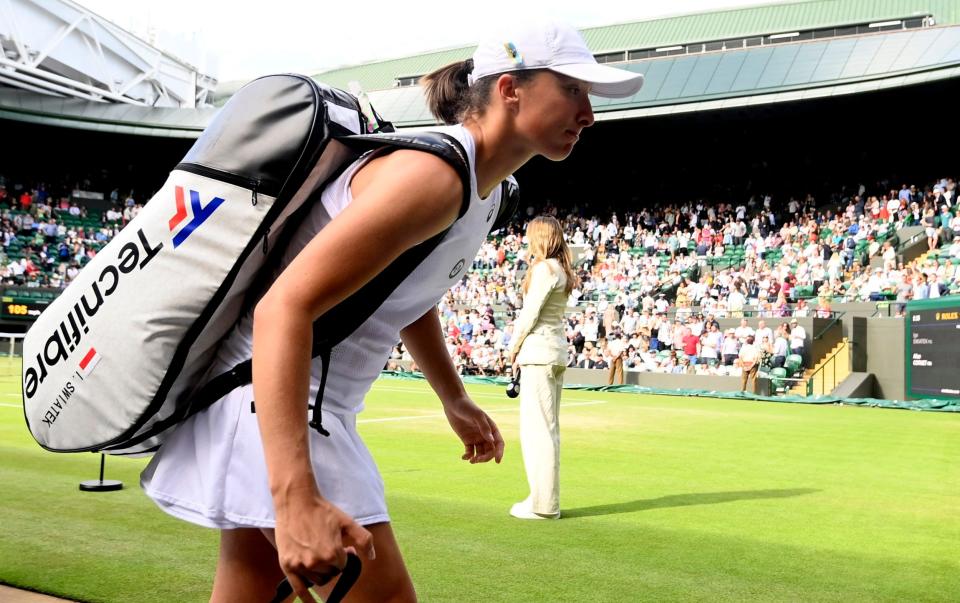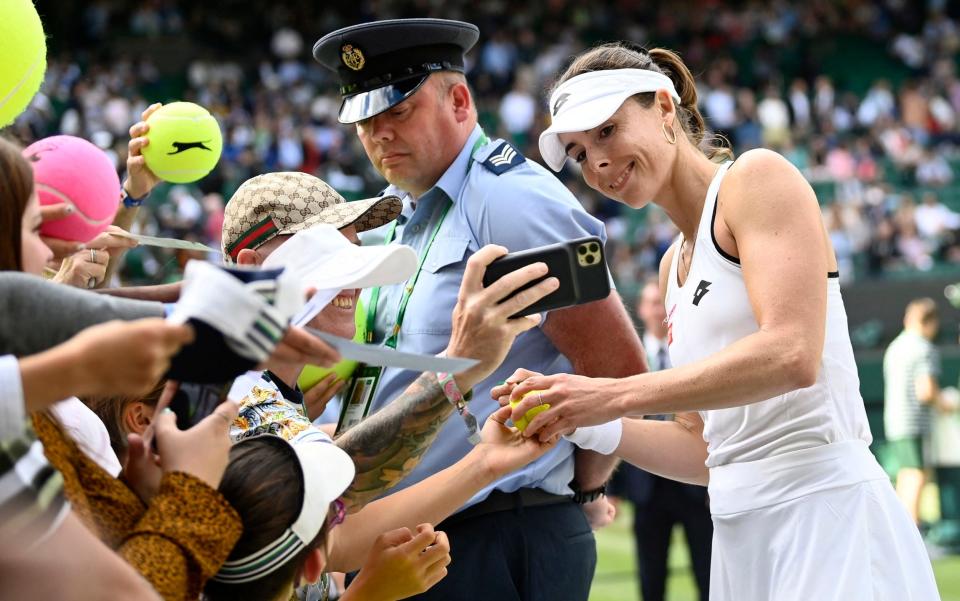Iga Swiatek's four-month run as tennis' Miss Invincible ended by Alize Cornet at Wimbledon

Iga Swiatek’s four-month run as tennis’ Miss Invincible is over. After 37 straight victories, stretching back to mid-February, Swiatek was finally undone by the deft hands and spiky attitude of France’s Alize Cornet.
This wasn’t a result anyone had predicted in advance – apart from Cornet herself, a woman of great self-confidence. Swiatek has been so dominant lately that she could take the rest of the season off and still finish the year as world No 1. But there was one crucial factor working in Cornet’s favour: grass is Swiatek’s Kryptonite.
“For sure I didn't have as much belief as on other surfaces,” Swiatek admitted afterwards. “On grass court everything happens so quickly. I can't just use my topspin. I tried many things to feel better, but it didn't really work out. That's why I'm not even hard on myself – because if I couldn't find it even on practices, I'm not going to find it on a match.”
The alarm bells rang early. Within 13 minutes, Swiatek was already 3-0 down, having dropped serve twice and racked up nine unforced errors in 21 points. And these weren’t what coaches call “good errors”, where you aim for the line and miss by a millimetre.
Instead, Swiatek was firing wide of the tramlines or burying the ball in the bottom of the net. Cornet simply had to stay solid in those opening moments and hope she wasn’t going to get clonked on the head by a wild miscue.
To Swiatek’s credit, she regrouped during that first changeover sit-down. She recovered one of the breaks of serve and started constructing points with more care. But then, she admitted later, she became confused.
Her success this year has been based on her power game, in which she holds the centre ground and makes her opponent do all the running. On this slicker surface, though, the only way she could keep the ball in play was to dial back the aggression and enter into a grinding slugfest – which is much more Cornet’s style than her own.
So as the match entered the home straight, Swiatek’s navigational computer exploded. She began rushing faster and faster between points and reverting to the sort of howlers that she had started with. Cornet closed out her 6-4, 6-2 victory with such ease that, during Swiatek’s post-match press conference, the world’s best tennis player had to explain why she couldn’t find the court.
“I didn't tank it,” Swiatek said, “but I just didn't know what to do. I was hoping that it's going to go in, but I did many mistakes. I didn't even want to get angry again because I was kind of frustrated during my practice week and in my second round. I didn't think it's going to help me.”
For Cornet, this was another heartwarming victory to place alongside the one she scored on this same No 1 Court against Serena Williams in 2014. Back then she was seeded, whereas now she is the world No 37, one of nine unseeded women to reach the last 16 of this event.

At 32, Cornet has just equalled Ai Sugayama’s record of appearing in 62 consecutive majors, and should move into clear water at the US Open. She has racked up 73 victories in that time, but had never reached a quarter-final until January’s Australian Open. Even though she is playing the best tennis of her life, she says that she is on her last lap of the circuit, and plans to retire within the year - probably at 2023’s French Open.
“I'm like good wine,” Cornet told on-court interviewer Jenny Drummond, with a broad grin. “In France, good wine always ages well. That's what happens with me.”
Later, speaking to reporters, Cornet explained that she had seen this win coming as soon as she saw the identity of her third-round opponent.
“I kept telling myself someone would have to break the streak eventually,” Cornet said. “And why not me? I thought that here was the best chance for me to do it. Maybe it was her less good surface. She's so good on clay court and hard court. I knew I had a little opportunity to do something. I knew I had to play a very solid match. I think that's what I did.”

 Yahoo Sport
Yahoo Sport 





































